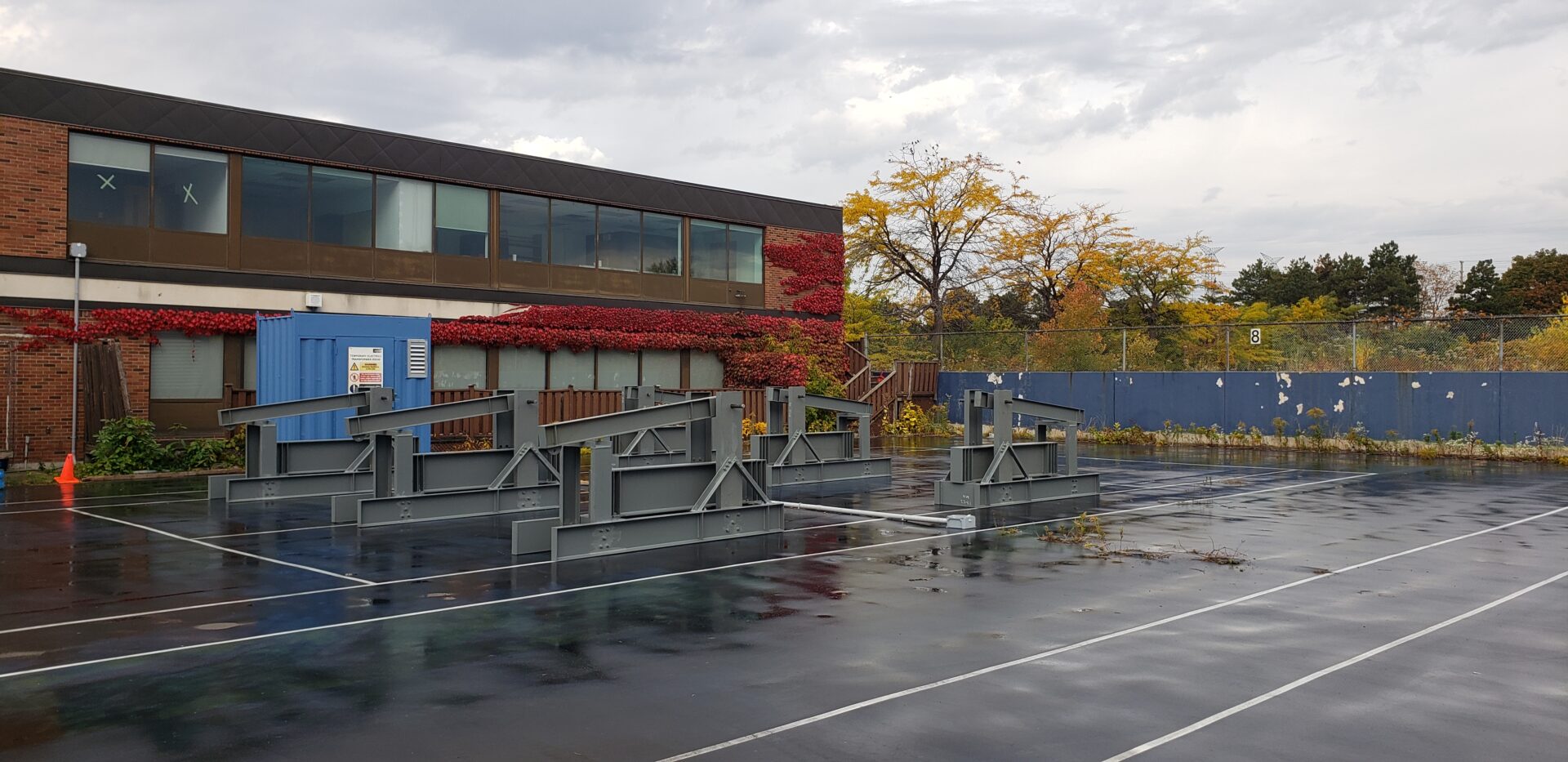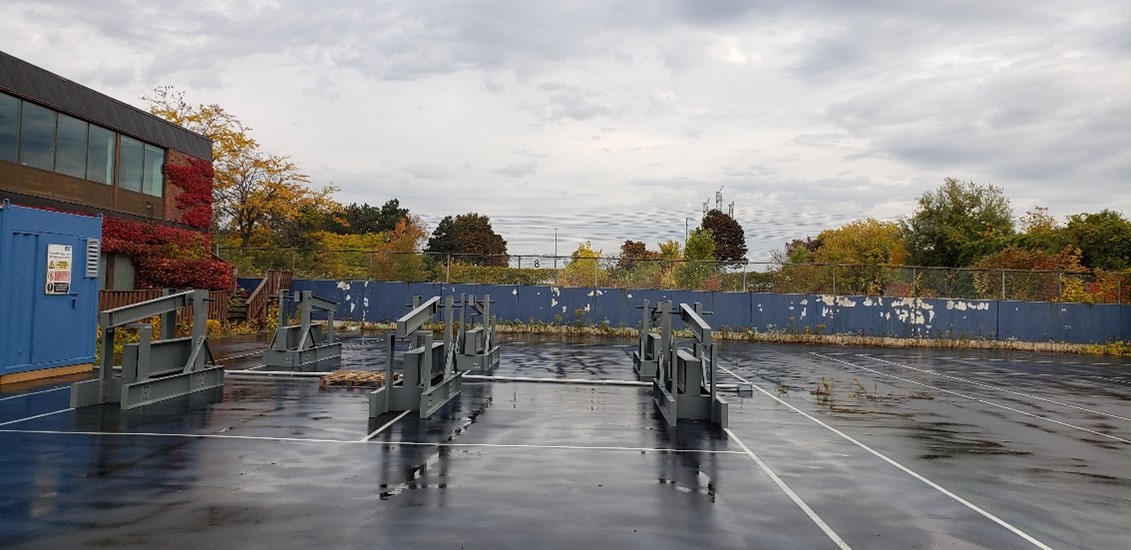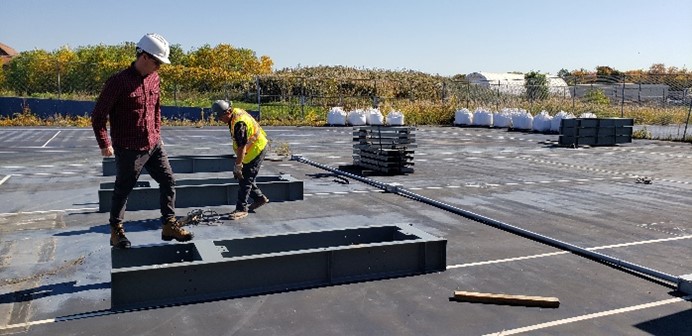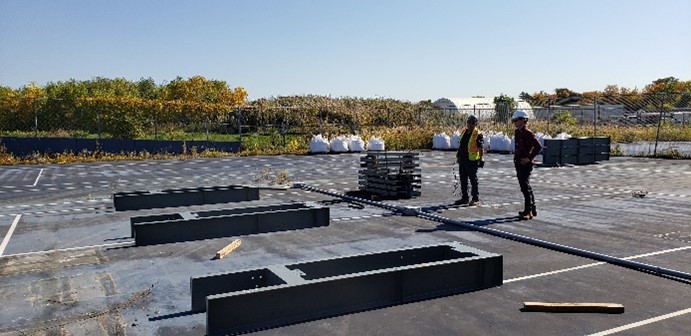New Lassonde facility explores how climate conditions affect the behaviour of infrastructure
Tags:

From chilling snow and rain to intense humidity and heat, frequent changes in Canadian climate conditions can negatively influence the behaviour of infrastructure materials used in systems such as roads, bridges and tunnels, leading to their improper function.
To better understand the impact of various climate conditions on infrastructure and improve their design, Professors Liam Butler, Matthew Perras and Usman Khan from the Civil Engineering department at York University’s Lassonde School of Engineering have established the Climate-Data-Driven Design (CD3) Facility for Built Infrastructure, through funding support from the Canadian Foundation for Innovation’s (CFI) John R. Evans Leaders Fund (JELF).
This unique facility, located at York’s Keele campus, will allow for outdoor testing and monitoring of natural and infrastructure materials to evaluate their performance under realistic conditions, using advanced sensing and data analysis techniques. Also, through local and global partnerships with industry, this new facility will deliver mutual benefits, providing partners with an innovative space to test infrastructure materials, while advancing the reach and reputation of the facility and School – collaboratively driving solutions to some of the most pressing infrastructure-related challenges in Canada and around the world. In addition, this facility will benefit student training and recruitment at Lassonde, allowing for experiential learning opportunities that promote skill-building and inclusion.
The vision for Lassonde’s CD3 Facility for Built Infrastructure is to become Canada’s leading field-testing laboratory for studying the effects of climate variability on the behaviour of materials, ensuring more resilient infrastructure in the future.

“There are very few facilities like this in the world,” says Professor Butler. “We want to leverage Lassonde’s state-of-the-art High Bay Lab for testing structural materials but also have the capability for testing in an outdoor setting. This way we can understand how our infrastructure materials behave in realistic conditions and therefore, develop methods for improving their design.”
Experiments conducted at the facility will tackle various objectives to help inform and improve infrastructure design in Canada and around the world. Natural and structural materials will be exposed to climate conditions while monitoring and analyzing their response using different sensors and measuring the impact of various climatic parameters. Using existing indoor lab facilities and artificial intelligence (AI) methods, data collected from outdoor experiments will be used to interpret the effects of climatic conditions on the tested materials and develop models to predict their future performance over a variety of time scales and climate change scenarios. This pioneering climate-data-driven approach to infrastructure design and assessment has only been made possible with this new CD3 facility.
Developing a better understanding of how materials respond to real climate conditions can provide an immediate benefit to industry partners, helping them make more informed decisions for infrastructure design. Experiments performed at this facility will also establish critical information about the behaviour and long-term performance of emerging infrastructure materials, allowing for proactive measures to be taken when developing the next generation of infrastructure.


Professor Liam Butler helping install test frames at the CD3 Facility for Built Infrastructure.
Those interested in learning more about the CD3 Facility at York University or to explore future testing and research collaborations are encouraged to get in touch with Professor Liam Butler (liam.butler@lassonde.yorku.ca), Professor Matthew Perras (mperras@yorku.ca) or Professor Usman Khan (usman.khan@lassonde.yorku.ca).
Keep up with the facility’s developments and view the first release on YouTube.